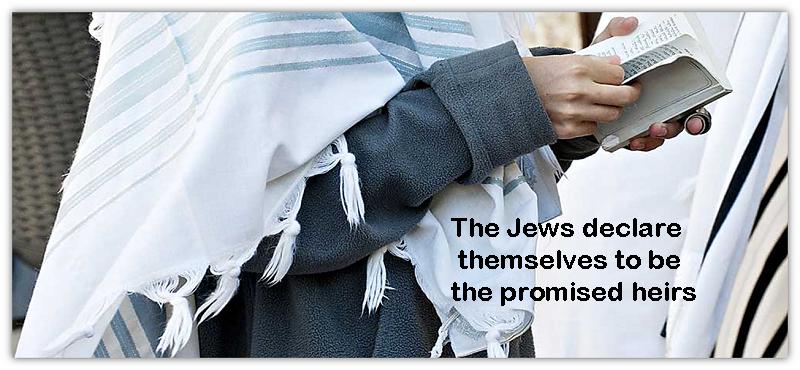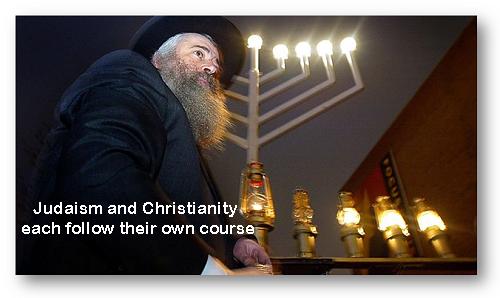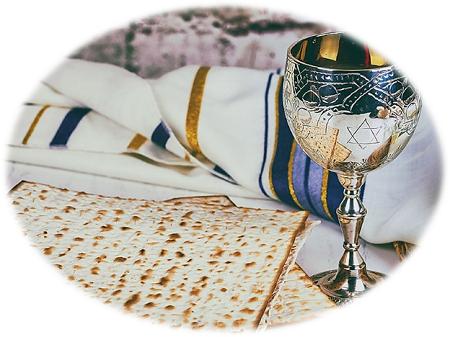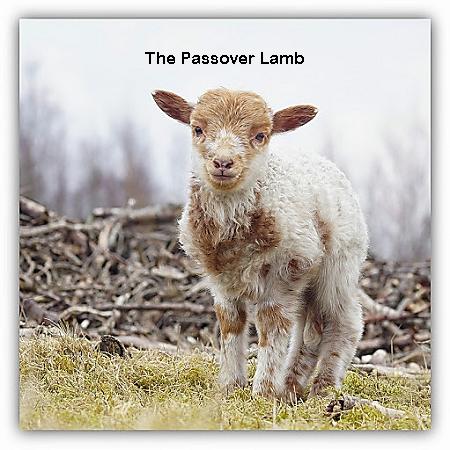Nicea: Jacob and Esau Come of Age
Nicea: Jacob and Esau Come of Age

Like Jacob and Esau, the Church and the Synagogue had a life-or-death struggle for the rights of inheritance. At first, Christians were persecuted. From Nicea on, it was the Jews who suffered.
The Jewish opposition to Jesus already starts when He reminds them that God can show favor to Gentiles. The examples He gives them of the widow in Zarephath and Naaman, the Syrian, give rise to murder plans (Luke 4:24-30). When Paul speaks to the people of Jerusalem in Hebrew, the crowd is all ears. Until he explains that Jesus Himself commissioned him to go to the Gentiles, the people far from Jerusalem (Acts 22:22-23). Even the Jewish Christians had trouble accepting Gentiles, non-Jews, as brothers, because they were from other nations (see Romans and Galatians).
Having rejected Jesus nationally, the Jews turn on His followers, as Jesus had predicted (John 15:20). The fact that Rabbi Saul issued “threats and murder against the disciples of the Lord” (Acts 9:1), confirms this. After the Temple is destroyed, the tide turns. The Christian Faith gains a foothold in the Roman empire and outgrows its Jewish parent. Christianity is challenged in the “idea marketplace.” Greeks find Christianity illogical, mainly due to the Trinity and the Resurrection. For Jews, the inheritance is the problem: who is the Covenant’s rightful heir? Christians believe all the Old Testament promises had been accomplished in the Son; only “in Him” can you be saved. By rejecting Jesus, the Jews declare themselves to be the promised heirs. The battle lines were drawn.
It’s worth noting that the theological hostility begins on the Jewish side. But Christians will more than make up for that.
Atonement without Sacrificial Blood?⤒🔗
The Jews steadfastly insist that Jesus is not the Messiah, even after the Temple is destroyed in A.D. 70, exactly as Jesus had prophesied. But how can Judaism now survive? God had emphasized that atonement is only through blood (Lev. 17:11), and sacrificial blood can only be offered at the Temple (Deut. 12:13-14). What a dilemma! Judaism is suddenly without atonement. What can they do?
They make a choice. They follow the teacher Johanan ben Zakkai. He declares, based on Hos. 6:6, Prov. 16:6 and Ps. 84:3, that works of benevolence have atoning powers as great as those of sacrifice. This view, however, does not solve the problem. Hence a large number of Jews accepts the Christian faith in the Atonement by the Blood ‘shed for many for the remission of sins’ (Math. 26:28, Heb. 10:12, Col. 1:20), in Jesus as the ‘Lamb of God’ (John 1:29, Rev. 7:14 etc.)
This forces the Rabbis to reconsider their atonement idea. Not an easy thing after rejecting God’s own provided atonement! They come up with the doctrine that atonement is granted on the basis of God’s Fatherly love and human repentance, prayer and good deeds. Israel thus steps away from Biblical Judaism into Rabbinic Judaism. A theological shift such as this, of course, makes Jesus superfluous: there is salvation without an atoning Savior, who atoned for sin through His sacrificial death.
And yet, what does Rabbi Nachman relate, in accordance with the Jewish tradition? In the old Temple times a scarlet thread was fastened to the Temple’s door. If the scarlet thread turned white on the Day of Atonement after the priest completed his ritual, the people would rejoice: it was a sign their sins had been forgiven. If it didn’t, they would mourn. Then we read: “It has further been taught that for forty years before the destruction of the temple the thread of scarlet never turned white, but it remained red.” Forty years before AD 70 brings us to the crucifixion! The implication is stunning: no ritual sacrifice was effective after the atoning death of the Lamb of God. Judaism had truly been cast aside.

After the resurrection of Jesus, two religions diverged. It is fascinating to see how Judaism and Christianity each follow their own course with an eye on the other. For example, Jews at an early stage add an item to their formal prayers, intending to exclude Jewish Christians from the Synagogue. Jews also relinquish kneeling (with one annual exception!) because Christians also kneel...
Nicea: Cut Loose from the Mother-faith←⤒🔗
Though born of Old Testament soil and organizationally nourished by the synagogue, Christianity too seeks to distinguish itself from Judaism. When Jacob tricked the blessing from Isaac, Esau saw red. When God moves the promises from Israel to His Son, the Old Israel first breathes out threats. However, the New Israel eventually also shows its worse side. The Christians claim to have the sole right to the Salvation, to the Old Testament, the sole right to speak for God. For, they reason, we strive towards the salvation of the world.
The Church has a problem accounting for the Jews’ existence. If God had accomplished in Christ all He had intended for the Jews, why were there still Jews? The Church would soon find an answer to that question: the Jewish people are a living proof that God punishes unfaithfulness.
At Nicea, the Church makes it clear that it wishes to sever all bonds with her “mother”. She begins an official program of distancing herself from the Jewish Faith, in form as well as in creed. At the Council of Nicea this effort received the backing of the power of the Roman Empire.
The Council of Nicea addresses threats to her identity from all over the world! According to Paul, humanity is composed of Jews, Gentiles, and the Church of God (1 Cor. 10:32). At Nicea, the Church has to defend herself to
- Jews, who claim to be the only rightful heirs to the covenant;
- Gentiles, who claim wisdom as theirs alone; and
- even to members of the Church of God, principally the Arians, who deny that Jesus is Gods Son.
Though decisions made in that Council have rightly been called “the bedrock of our faith,” there is today widespread ignorance concerning this first great assembly of the Church (not counting Acts 15). Take, for example, the suggestion that the Trinity was invented at Nicea. This is a misunderstanding. The doctrine of the Trinity was defended at Nicea, not invented.
The Lord’s Day and Passover←⤒🔗
The same kind of misunderstanding exists regarding observance of the Lord’s Day as opposed to the Jewish Sabbath. Lord’s Day observance begins with the resurrection. The Apostle John emphasizes that Jesus revealed Himself to His disciples on the first day of the week (John 20:19), and next appeared on the following Lord’s Day (John 20:26). The Spirit poured down from heaven at Pentecost, that year on a Lord’s Day. The New Testament implies that disciples of Christ continued to gather for worship on the first day of the week (compare Acts 20:7; 1 Cor. 16:2, Rev. 1:10). This impression is unanimously confirmed by early Christian literature.
Theologically, the shift from the seventh to the first day is very beautiful: the Lord of the Sabbath took the old with Him into the grave, rose as victor over sin and death, and began the New Creation. Nothing could seem more natural than the continuation of apostolic example in gathering for worship on the Day of Resurrection.

What then should Christians do about Passover (the Jewish Easter Feast)? First, Christ clearly was the Paschal Lamb of God. Second, there is no question that generations of Christians commemorated Christ’s death on the same date as Jews observed Passover: the fourteenth of the Jewish month Nisan. Before the third century, however, a growing number of Christians, particularly in the West, insist the Church devise a different method of calculating days for commemorating Jesus’ death and resurrection. They think that His death ought always to be observed on a Friday, and His resurrection on a Sunday.
At the time of the Nicean Council, the Western (i.e. the Roman) practice had become dominant. In the fifth-century, someone reports that the Council officially asserted “all the brethren in the East who have heretofore kept this festival at the same time as the Jews, will henceforth conform to the Romans and to us...” This illustrates how eager the Church leaders were to distinguish themselves from the Jews. In 300 years the Church had gone from being a Jewish sect to an anti-Jewish, state-approved religion. It is important to stress this last clause, for the real difference marked at Nicea was less a matter of Church practice than of civil enforcement. Heretofore Christians might indeed have worshiped on the Lord’s Day, but after Nicea, civil government legalized the Lord’s Day, and to an extent, enforced its observance.
Necessary Distinction and Unnecessary Distance←⤒🔗
It seems inevitable that Christianity should distance itself from the tradition out of which it was born. The Christian Faith evolves to independency. But it is then no longer Judaism, least of all is it Rabbinical Judaism. The Council of Nicea may be seen as a marked moment of ‘the parting of the ways.’ The Church officially separates herself from Judaism. This becomes politically significant when separation of Jews from Christians, and the subordinate status of Jews, is translated into legislation by the Roman and Byzantine Christian Emperors.
From that point on the Jewish roots of the Christian faith gradually, and often deliberately, disappear to the background. The consequence is not only that Jews suffered terribly and needlessly, but also that Christians sold themselves short by lack of appreciation of their Biblical heritage. The fullness of Christ’s work has been hidden because it is only found in the heritage of the “Jewish” Scriptures. Also, the very character of Scripture as a narrative has been sanitized into systematic boxes suitable to people who have learned to think in the Greek (Hellenic) tradition
The Old Testament can illuminate our faith. The Passover, for example, required three elements: bitter herbs, the Passover lamb, and unleavened bread (Numbers 9:11). Amazingly, these are powerful symbols of the very things which our Catechism insists are necessary to enter into the joy of our “comfort.” The bitter herbs show me “how great my sin and misery is.” The Passover Lamb tells me “how I am to escape such sin and misery”. And the unleavened bread stands for the life of thanksgiving for His great salvation (cf. 1Cor. 5:7-8). The Bible is richer than we can imagine. Nicea was inevitable – the Church had to express her own identity, had to seek out the Greek terms which alone could fully express Jewish Messianism while satisfying Greek intellectualism. Yet it was not inevitable to cut off the Jews from legitimacy in history. Especially after Paul’s stern warning against that very form of arrogance (Rom 11:19-21): You will say then, “Branches were broken off so that I could be grafted in.” Granted. But they were broken off because of unbelief, and you stand by faith. Do not be arrogant, but be afraid. For if God did not spare the natural branches, he will not spare you either.
Back to the Whole Word←⤒🔗
This warning was addressed to Gentile believers. Did Nicea mark the beginning of the Gentile Church’s “hearing difficulty” of the Old Testament? If we listen more closely to the whole Word we could gain a deeper appreciation for the Old Testament.

We could increase our understanding of the Old Testament Calendar of Feasts, and how Christ fulfills all these. We could more consciously celebrate Christ as our Passover sacrifice. We could marvel at the link between the first Pentecost (at Pentecost the Jews commemorate the giving of the Law!) where 3000 Israelites were killed, and the new, full Pentecost, where 3,000 were saved (compare Ex 32:28 with Acts 2:41).
Our renewed appreciation for Israel’s Feasts could reinforce the truth that Passover was “applied to” Pentecost, and Pentecost was “applied to” Sukkoth. Then we could keep the image of Sukkoth vividly before us as the goal of our service in the Kingdom. We have not arrived. God and man dwelling together in peace in the New Heavens and the New Earth is our destination. And we must not rest until we have said to the Jews, “Thank you for showing us the Way. We cannot be fulfilled unless you come along with us.”

Add new comment